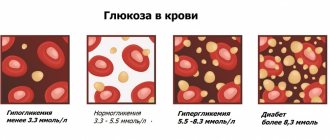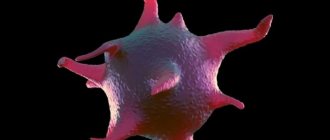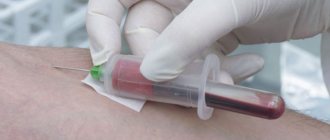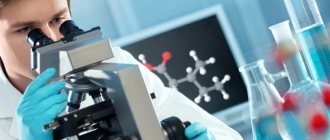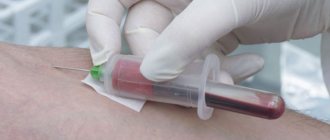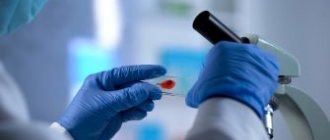Before donating blood for analysis, you need to learn a number of rules, without which an accurate result is impossible.
Alla Nikolaevna Mikhailova, a laboratory diagnostics doctor at the INVITRO Independent Laboratory in Moscow, advises.
— The most accurate research result depends both on the level of the laboratory in which the analysis is carried out, and on the preparedness of the patients themselves. Currently, laboratory doctors have prepared special recommendations, the development of which took into account the requirements of international protocols in the field of laboratory diagnostics and European companies that manufacture automated laboratory equipment.
Before or after food?
Some studies require preliminary preparation, in particular, restrictions on food intake. Do the following on an empty stomach:
- Biochemical studies: glucose, creatinine, bilirubin, triglycerides, lipid profile;
- Blood test for infections: syphilis, hepatitis B antigen
- Hormones: TSH, parathyroid hormone.
Carefully follow your doctor's recommendations: if you need to donate blood on an empty stomach, then at least 8 hours should pass between the last meal and blood collection, and for triglycerides - at least 12 hours. Juice, tea, coffee, especially with sugar, are also food, so you will have to be patient. You can only drink water.
One or two days before the examination, it is advisable to exclude fatty, fried foods and alcohol from the diet. If you had a large feast the day before, reschedule the laboratory test for a day or two, and refrain from smoking an hour before taking blood.
If you have to take a general blood test, the last meal should be no earlier than an hour before the procedure and may consist of unsweetened tea, porridge - without sugar, milk and butter. You can donate blood for antibodies to HIV infection, viral hepatitis, rubella, cytomegalovirus and a number of other infections in the morning, afternoon or evening, and without prior fasting. And one moment.
The content of many blood parameters is subject to daily - so-called circadian - fluctuations. Therefore, blood to determine TSH, parathyroid hormone, and also for iron is donated on an empty stomach, strictly before 10 a.m. In general, it is advisable to always conduct studies of hormone concentrations at the same time - in this case, a comparative analysis of the results obtained will be more correct.
Features of antibacterial therapy
Features of the action of antibiotics
All antibiotics are classified into two groups, depending on their effect on harmful microorganisms:
Bactericidal. The action of the drug is based on the destruction of the infection.
Bacteriostatic. The active substance causes a disruption in the cellular chain of the pathogen, causing it to lose the ability to reproduce and gradually die.
Once in the body, the antibiotic spreads along with the blood to all organs and systems. Each drug, depending on the active ingredients included in the composition, can accumulate in certain quantities in any one organ. Thus, the concentration of ampicillin in the inner cavity of the middle ear is higher than that of drugs from the penicillin group. Accordingly, the infectious pathogen will be destroyed faster.
However, a danger to humans is the fact that many types of antibacterial drugs are aimed at destroying not just one pathogen, but entire groups in which there are not only pathogenic, but also beneficial microorganisms.
An imbalance leads to the proliferation of a fungal infection that is resistant to almost all known antibiotics. The patient's immunity is suppressed, allergic reactions develop, and the toxic effect on the body increases. In addition, antibacterial agents can change the composition of the blood.
How to find out if antibiotics affect a biochemical blood test? First of all, take a hematological test and wait for the results that will show the clinical picture.
Tablets are contraindicated
Taking medications, such as antibiotics or chemotherapy drugs, can also affect the test result. Therefore, blood must be donated before starting to take them or no earlier than 10-14 days after stopping them. The only exception is when they want to measure the concentration of drugs in the blood. If you are taking any medications, be sure to notify your attending physician and treatment nurse. Blood should not be donated immediately after an x-ray, rectal examination, or physical therapy.
The main restrictions before donating blood for analysis - what and why not
The quality of our blood is constantly changing, its elements quickly react to the entry of any substances into the body. Any product consumed, taking various medications, sports, high loads always cause a reaction in the receptors, and they, in turn, send signals through the central nervous system to the parts of the brain where hormones are produced.
These compounds are a marker of any physiological reactions in the body; they are “thrown” into the blood and change the metabolic balance. Homeostasis and regulation of almost all functions in the body are the main task of hormones, but their atypical combination for everyday life and increased concentration in the bloodstream make any blood sample unsuitable for analysis. It is for these reasons that before donating blood, you should consider simple but most important preparation rules.
Food and drink regime, medications
Every food product and drink has a glycemic index (GI). This parameter shows how long it takes for the carbohydrates contained in any product to be converted into glucose (sugar). This, in turn, requires the production of insulin, a pancreatic hormone. In the process of processing and digestibility of carbohydrates, the level of sugar and fat inevitably increases, since the conversion of carbohydrates into lipids and cholesterol is part of carbohydrate metabolism. Fats are also found in food. And insulin is produced in response to any supply of nutrients, literally even a crumb of bread.
Eating food with any GI, drinking any drinks, especially alcoholic ones, changes the composition of the blood, in particular its serum - the main material being studied. A few hours before the tests, you should refrain from eating, especially fatty foods, and any drinks with sugar.
How long (average) does it take for insulin sugar levels to normalize?
There are no strict rules regarding the use of medications, but a number of drugs, for example, antibiotics, hormonal, and steroid drugs, can affect the composition of the blood. However, it is not always possible to exclude them from the treatment program. At the same time, it is advisable to stop taking analgesics and medications containing aspirin three days (72 hours) before donating blood. Before scheduling a blood draw, you should always discuss the decision to discontinue pharmaceutical medications with your doctor.
We list the conditions for the main, most popular tests; periods of abstinence may vary depending on the purpose.
- Comprehensive and selective hormone tests
- you can’t eat for 12 hours;
- estrogens and androgens are canceled 48 hours before blood donation;
-You can drink clean water.
- General analysis (clinical)
-do not eat 8 hours before blood sampling;
-temporarily interrupt the course of treatment, the interval is according to the withdrawal period of the drug (instructions for the drug);
-exclude alcohol – at least 24 hours;
- you can - clean water without gas.
- Biochemical blood test
- without food for at least 8 hours, optimally 12 hours, without fatty foods preferably for 24 hours;
-highly toxic drugs are discontinued within 24 hours if the therapy program allows;
-alcohol is prohibited the day before blood sampling;
-still water is allowed.
Stress and physical activity
As with food and drinks, hormones are also to blame for incorrect results. Only in the case of loads and stressful situations - others. Active exercises, sports, hard physical labor, even insomnia are always accompanied by the production of adrenaline, which enhances the destruction of the main elements of metabolism: carbohydrates, fats, proteins. In addition, high physical activity inhibits the production of sex hormones, which leads to a decrease in protein biosynthesis in tissues. Cortisol and glucagon, released during exercise, increase the concentration of glucose and fatty acids in the blood.
All these components are examined in basic blood tests, which is why it is recommended to take them at the recommended state of rest. As for stress, this also includes smoking.
Leukocytes are elements of the immune response, their level increases, since nicotine is a toxin, and evolution has provided the body with mechanisms for an unconditional reaction to resist toxic substances.
Hemoglobin - as part of the red blood cell, carries oxygen, rises sharply at the time of smoking, in an attempt to extract the required level of oxygen from the lungs, where it is not enough.
Red blood cells - their level also rises, the blood becomes thicker.
Platelets are a blood clotting mechanism; under the influence of nicotine, new cells of this type are produced, but some of them are defective, which affects the health of blood vessels.
Smoking is prohibited before taking blood tests.
- Blood for hormones and selectively, comprehensively
- you cannot engage in sports or heavy physical work the day before your appointment with the doctor and blood sampling;
- do not smoke 3 hours before blood sampling.
- General blood test (GBC) and biochemical blood test
-exclude physical activity and stress for at least 30 minutes, optimally 3-4 hours;
- smoking - at least 30 minutes before, optimally donate blood 3-4 hours after nicotine intake.
WHAT ELSE CAN AFFECT THE ANALYSIS RESULTS
"Women's" tests
We are talking about hormonal studies in women of the so-called reproductive age - from 12-13 years old until the onset of menopause. During this period, the results of the analysis are influenced by physiological factors associated with the stage of the menstrual cycle. When conducting a test for sex hormones, strictly follow the recommendations of your doctor. If there are no other recommendations, then, as a rule, blood is taken to determine the level of FSH and LH on the 4-6th day of the menstrual cycle. And blood to determine the level of estradiol and progesterone - on the 21-23rd day of the cycle.
Types of analyzes
Laboratory tests performed regularly can provide an accurate picture of your health status. Until the age of 30-40, this procedure should be used annually, and after 40 - once every six months. In the largest laboratories, including Invitro, you can be offered a minimum set of annual preventive examinations:
- blood chemistry. It is determined by 11 main indicators and characterizes the state of the functions of the liver, kidneys, heart, blood vessels, gastrointestinal tract, carbohydrate, protein and fat metabolism. Helps in the diagnosis of anemia, diabetes, atherosclerosis, heart attacks, strokes, chronic inflammation, as well as conditions associated with protein loss and its redistribution due to edema;
- General blood and urine tests, determination of C-reactive protein. These tests will show the presence or absence of inflammatory processes in the body;
- diagnosis of the most dangerous infections. These include syphilis and viral hepatitis B and C. If at least one of the indicators deviates from normal values, this is a reason to consult a doctor and conduct additional laboratory diagnostics.
Symptoms
Signs of platelet disorders primarily manifest themselves in the form of the so-called hemorrhagic syndrome, which in this case acquires some specific differences.
Main symptoms:
- possible appearance of pinpoint rash, so-called petechiae - purple spots up to 3 mm in diameter;
- ecchymosis - hemorrhages in the skin and mucous membranes;
- spontaneously occurring bleeding - nosebleeds, from the gums, unusually long and heavy menstruation, etc.;
- prolonged bleeding even after minor injuries (for example, tooth extraction).
The severity of these symptoms depends on the degree of reduction in the number of platelets, as well as on the severity of their qualitative defects. The most dangerous complications are cerebral hemorrhages, intestinal and uterine bleeding.
Interesting fact
It takes no more than 10 minutes to conduct a general blood test using a new device developed at the Radio Engineering Institute. Academician Mints. It automatically counts the concentration of red blood cells, white blood cells and platelets and stores the results in memory. In addition, the new device automatically calculates the leukocyte formula of the blood, evaluates the size distribution of red blood cells, leukocytes and platelets, and determines the average hemoglobin content. And finally, it identifies normal and pathological forms of red and white blood cells, which in itself helps to identify a number of diseases. There are no complete analogues to the device in the world.
Treatment
In acute cases, with a critical decrease in the number of platelets and/or massive bleeding, treatment is carried out in a hospital.
The first step is to identify the drug that caused the disorder and stop taking it. As a rule, the situation should normalize within the next 10 days. To eliminate the consequences the following are used:
- administration of procoagulants, antifibrinolytic drugs; plasmapheresis;
- if necessary, infusions of blood products (platelet mass, fibrinogen, thrombin);
- symptomatic agents that normalize the rheological properties of blood; use of hormonal agents (corticosteroids), etc.
To prevent platelet disorders, re-prescribing compromised drugs to the patient is avoided.
The use of other agents that can produce similar reactions is accompanied by particularly careful and regular monitoring of hemostasis. Diet therapy is also used for preventive purposes. If you need a consultation with a hematologist, you can call us at + 7 (495) 540-46-56.
Our doctors are always open to communicate with patients - they listen to you carefully, willingly answer all your questions, explain in detail the course of the upcoming treatment and procedures, select the most effective therapeutic regimens and do not prescribe treatment “just in case.”
